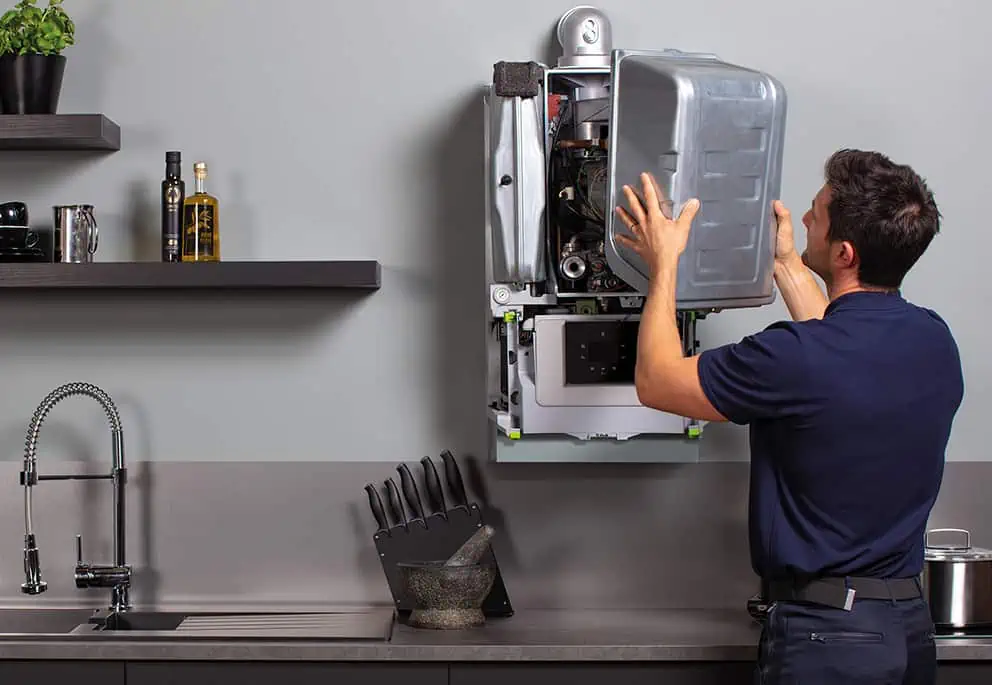Are you wondering whether you’re legally required to have your boiler serviced? It’s a common question for homeowners and landlords alike, especially as winter approaches and heating becomes a priority.
While regular boiler servicing is crucial for safety, efficiency, and ensuring your boiler runs smoothly, the legal obligations vary depending on whether you own your home or rent it out. In this article, we’ll explore the legal requirements surrounding boiler servicing in the UK, as well as why regular maintenance is essential even when it’s not legally mandated. By the end, you’ll have a clear understanding of your responsibilities and the best practices for maintaining your boiler.
Legal Requirements for Homeowners
If you’re a homeowner in the UK, you might be relieved to know that there is no legal requirement to have your boiler serviced annually. However, just because it’s not a legal obligation doesn’t mean it’s something you should overlook. Regular servicing plays a critical role in ensuring your boiler operates safely and efficiently, reducing the risk of dangerous issues such as carbon monoxide leaks.
Skipping regular maintenance could lead to a decline in your boiler’s performance, higher energy bills, and potential breakdowns, which can be costly to repair. Moreover, many boiler warranties require annual servicing to remain valid, meaning that neglecting this could void your warranty and leave you unprotected if something goes wrong. Therefore, while it’s not a legal requirement, understanding how often a boiler should be serviced and acting accordingly is highly recommended if you want to keep your boiler in top condition and safeguard your home.
Legal Requirements for Landlords
For landlords in the UK, the rules are stricter. Under the Landlord and Tenant Act 1985, landlords are legally required to ensure that all gas appliances, including boilers, are safe and in good working order. This involves arranging an annual gas safety check by a qualified Gas Safe registered engineer. The results of this check must be recorded in a Gas Safety Certificate, which should be provided to tenants within 28 days of the inspection.
In addition to the annual gas safety check, landlords must also service the boiler in accordance with the manufacturer’s instructions. Regular servicing helps to ensure that the boiler remains efficient and safe, preventing breakdowns that could inconvenience tenants or even pose health risks. Failure to comply with these legal obligations can result in hefty fines, legal action, and potentially the loss of your rental license. As a landlord, staying on top of boiler servicing is not just a good practice—it’s the law.
Importance of Regular Boiler Servicing
Whether you’re a homeowner or a landlord, regular boiler servicing is essential for several reasons. First and foremost, it ensures that your boiler is operating safely. Boilers that are not properly maintained can develop faults that might lead to dangerous situations, such as gas leaks or carbon monoxide poisoning. Regular servicing helps to detect and fix these issues before they become serious.
In addition to safety, regular servicing can significantly improve your boiler’s efficiency. An efficient boiler uses less fuel to heat your home, which can lead to lower energy bills. Over time, the cost of annual servicing can be offset by the savings on your heating bills, making it a smart financial decision.
Moreover, regular servicing is often a requirement for keeping your boiler’s warranty valid. Most manufacturers stipulate that the boiler must be serviced annually; otherwise, the warranty may be voided. This means that skipping a service could leave you facing high repair or replacement costs if your boiler breaks down.
What Does a Boiler Service Involve?
Understanding what a boiler service entails can help you appreciate its value and ensure you know what to expect. A typical boiler service involves a qualified engineer inspecting and testing various components of your boiler to ensure everything is working correctly and safely.
The service usually starts with a visual inspection of the boiler and its controls to check for any obvious issues, such as leaks or signs of wear and tear. The engineer will then open up the boiler to inspect its internal components, including the heat exchanger, burner, and main injector, and clean them if necessary.
They will also check the flue and ventilation to ensure there are no blockages and that harmful gases are being safely expelled from your home. Finally, the engineer will test the boiler’s pressure, controls, and safety devices to make sure everything is operating efficiently. The entire process typically takes about an hour and provides peace of mind that your boiler is in good condition.
Best Practices for Boiler Maintenance
To keep your boiler running efficiently and to avoid unexpected breakdowns, it’s important to follow some best practices for maintenance. One of the most crucial steps is to schedule an annual boiler service. The best time to do this is during the summer months, when demand for heating engineers is lower, and you can ensure your boiler is ready for the winter.
In addition to annual servicing, regularly checking your boiler’s pressure and bleeding your radiators can help maintain efficiency. It’s also important to keep records of all services and repairs, especially if you’re a landlord, as this documentation may be required for legal compliance or warranty purposes.
Finally, always use a Gas Safe registered engineer for any servicing or repairs. This ensures that the work is carried out to the highest safety standards and that your boiler remains in good working order.
Don’t wait until your boiler breaks down to take action
Regular boiler servicing is crucial for maintaining safety, efficiency, and compliance with any legal obligations, especially for landlords. While homeowners aren’t legally required to service their boilers annually, doing so can prevent costly repairs and ensure peace of mind. Make boiler maintenance a priority to keep your home warm and safe.


